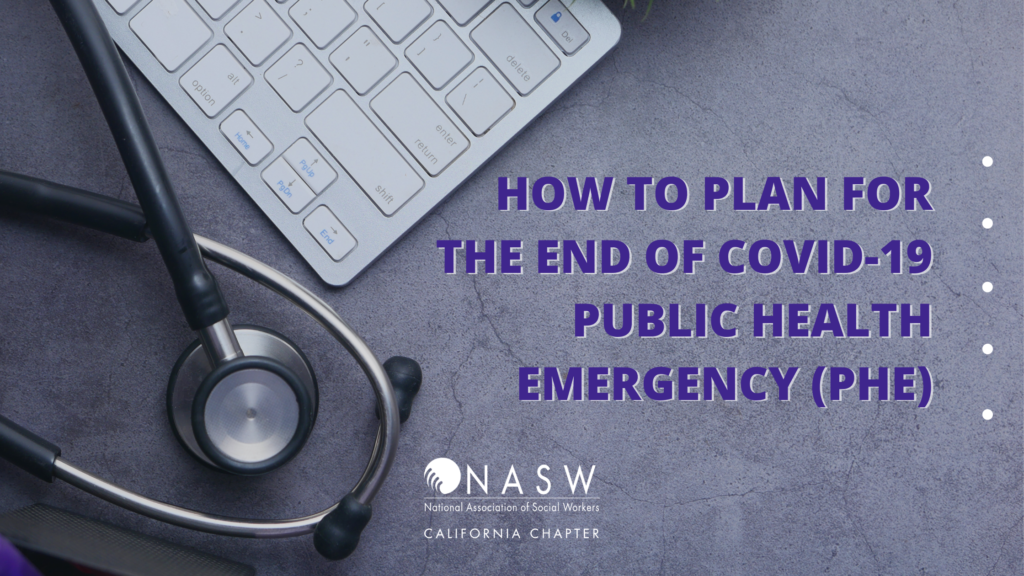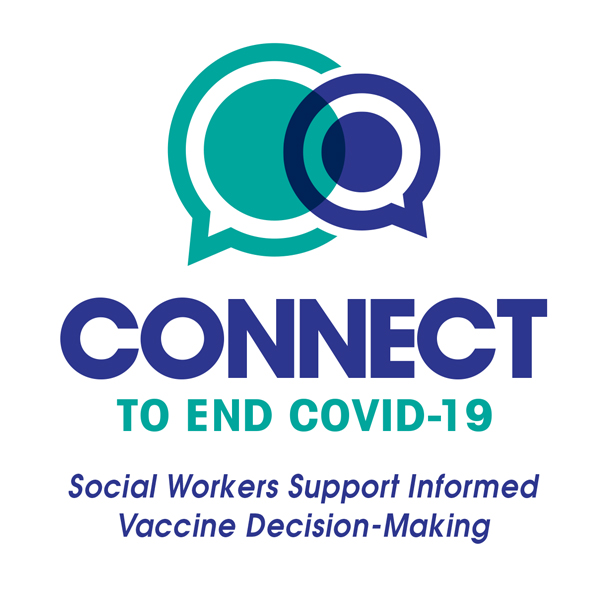
At the start of the COVID-19 pandemic in January 2020, the Secretary of the U.S. Department of Health and Human Services first declared a 90-day Public Health Emergency (PHE). The PHE declaration allowed flexibility in health care funding and regulations to respond to the pandemic. Since January 2020, the PHE has been renewed 11 times and is currently in effect through mid-January 2023.
On May 11, 2023, the COVID-19 Public Health Emergency is expected to expire. State agencies will begin the “unwinding” of continuous Medicaid and Children’s Health Insurance Program (CHIP) by going through the redetermination process for all enrollees. Up to 15 million people may be at risk of losing health insurance coverage. Unwinding refers to the return to normal operations for Medicaid and CHIP agencies after the COVID-19 PHE ends. When the PHE ends, states will begin conducting redeterminations again and will disenroll those who are no longer eligible. Individuals and families with income above the Medicaid threshold may be eligible to gain coverage on the Health Insurance Marketplace.
Social workers are important stakeholders who help individuals maintain their Medicaid and CHIP coverage– or facilitate a smooth transition to another health insurance program. Social workers, and the organizations in which they work, help individuals and families who receive Medicaid and CHIP to contact state agencies proactively to verify or update their contact information. Social workers also encourage clients to be on the lookout for mail, emails and phone calls that may alert them to the need to provide information. Many states are already conducting campaigns to ask recipients to be in contact with Medicaid and CHIP agencies to update their information. Organizations can amplify these campaign messages in their offices and on social media platforms.
We encourage social workers to review CDC’s Implications for the end of COVID-19 Public Health Emergency and CDC’s Vaccine Confidence & Demand Quarterly Partner Meeting. These resources offer guidance on how social workers can support individuals and communities as the PHE ends.
CDC’s Implications for the end of COVID-19 Public Health Emergency covers:
- What the end of the PHE means for CDC
- Data impacts
- Possible reduced submission of vaccine administration data from some jurisdictions
- Possible reduction in number of pharmacy testing sites
- And more
The recording of CDC’s Vaccine Confidence & Demand Quarterly Partner Meeting covers:
- Content on the end of the Public Health Emergency (PHE) on May 11
- Updates from American Psychological Association, American College of Obstetricians and Gynecologists, National Association of School Nurses, and National Nurse-Led Care Consortium
- Commercialization of COVID-19 vaccines
- And more
Interested in learning more? Explore the following resources to stay up to date on COVID-19 Public Health Emergency.
- NASW’s Connect to End Covid
- NASW’s Planning for Medicaid Unwinding in 2023
- NASW’s Key Health Care Policy Dates in Spring 2023
- USDA Changes to SNAP Benefits Amount 2023
- HHS Fact Sheet: COVID-19 Public Health Emergency Transition Roadmap
- CMS Fact Sheet CMS Waivers, Flexibilities, and the Transition Forward from the COVID-19 Public Health Emergency
- Kaiser Family Foundation The End of the COVID-19 Public Health Emergency: Details on Health Coverage and Access
- CMS Provider-specific fact sheets for information about COVID-19 Public Health Emergency (PHE) waivers and flexibilities
The Connect to End COVID-19 initiative is supported by the Centers for Disease Control and Prevention of the U.S. Department of Health and Human Services as part of a financial assistance award totaling $3.3 million with 100 percent funded by CDC/HHS. The contents are those of the author(s) and do not necessarily represent the official views of, nor an endorsement by, CDC/HHS, or the U.S. Government.












